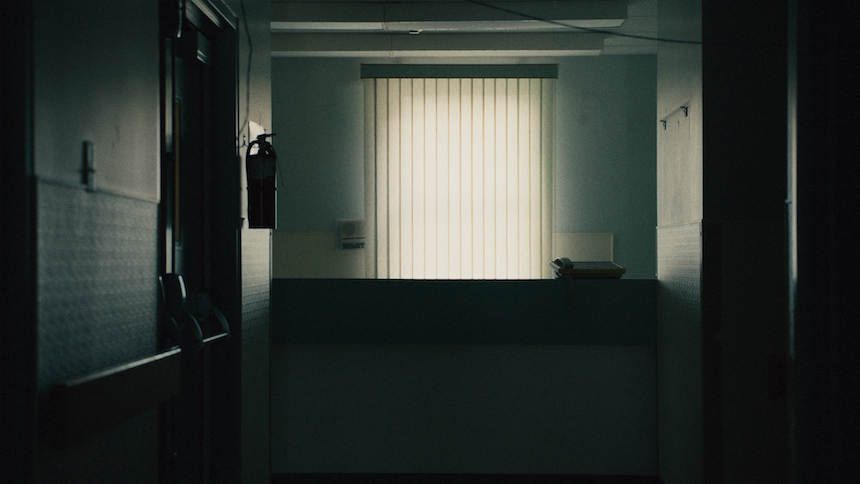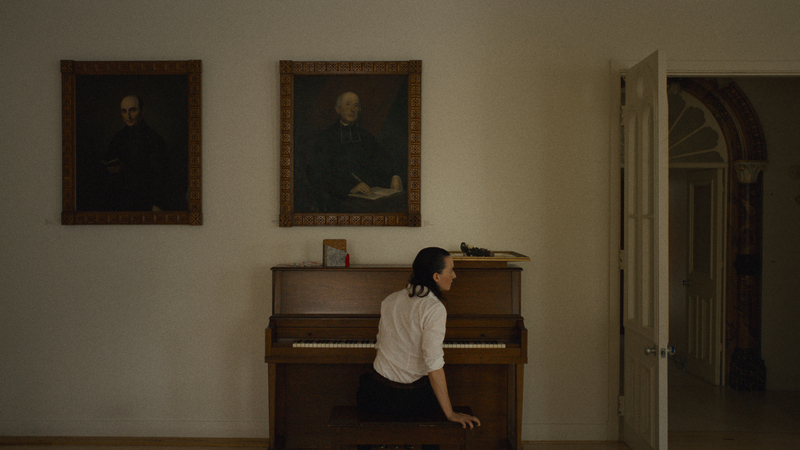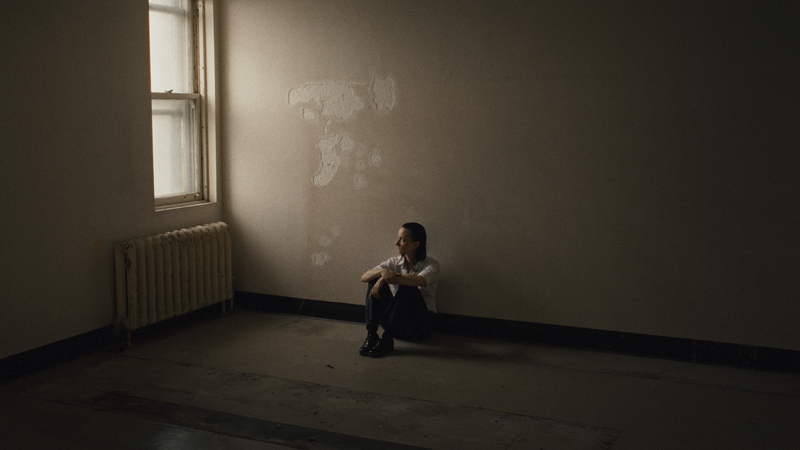Locarno 2023 Review: MADEMOISELLE KENOPSIA, Exploring Melancholy of Abandoned Spaces
Canadian auteur Denis Côté and actress Larissa Corriveau craft an evocative experience of solitude and space that invites a deeper exploration of both in the director's latest work.

Versatile Canadian independent filmmaker Denis Côté continues his artistic trajectory from last year's That Kind of Summer with another minimalist project, Mademoiselle Kenopsia.
The film serves as an introspective examination of solitude, unfolding primarily in transitional spaces. The thematic undertones of isolation and confinement mark it as a distinctly COVID-era cinematic endeavor.
In a nod to American experimentalist James Benning, the film starts with a contemplative focus on setting before introducing its main — and largely singular — character, the "Guardian of Spaces," played by Larissa Corriveau in her fourth collaboration with Côté.
The director's thematic focus on spatial perception gains relevance in the context of the pandemic, which fundamentally altered our interaction with once-vibrant locales, rendering them mere utilitarian settings devoid of aesthetic appeal. Larissa Corriveau's portrayal of the "Guardian of Spaces" initially situates her in what seems to be a dilapidated hotel. As the film unfolds, however, this setting reveals itself to be a multifaceted architectural entity, morphing from a meeting hall to spaces evoking spiritual sanctuaries.
The film's narrative, largely devoid of a traditional plot structure, trails Corriveau as she moves through nondescript interiors. Her presence serves as a tangible manifestation of loneliness, solitude, and seclusion, all imbued with a sense of melancholy. Initially conceived as a sequence of mesmerizing still images, Corriveau's character has transitioned from being a marginal, ethereal presence to occupying a more central role.
The title alludes to the notion of "Kenopsia," an informal term capturing the melancholy or unease associated with places once teeming with activity but now abandoned. Utilizing precise geometric framing and natural lighting, Côté, along with his director of photography, records these vacant locales in their most unvarnished form. Selectively, they superimpose 16mm projections onto these spaces, contributing an additional layer of complexity to the film's visual texture.
Côté deftly maneuvers between the formalism of fiction and documentary cinema, employing an experimental approach that alternates between reflective moments and dialogue. Known for his inclination to disrupt conventional narrative structures, he offers a film that resists easy categorization.
Mademoiselle Kenopsia focuses on the performative aspect of a body merely occupying, rather than actively engaging with, specific spaces, and it examines the relationship between the human form and abandoned architecture. The film serves as a multi-sensory meditation on solitude, isolation, disconnection, and social estrangement.
The film's sense of unpredictability shapes both its narrative and its character development, particularly that of the "Guardian of Space" played by Corriveau. Dialogue is largely eschewed in favor of monologues, even in the infrequent moments when Corriveau's character encounters another individual. Extended, static shots and a naturalistic portrayal of loneliness are further accentuated by an unanticipated transition near the film's conclusion, a move that serves to highlight the complex emotional and mental landscape of the central figure.
In Mademoiselle Kenopsia, Denis Côté advances his experimental approach to cinema, navigating the porous boundary between fiction and documentary. The film, which prominently features Larissa Corriveau, dives deep into themes of solitude and isolation, using the unique construct of space as both a literal and metaphorical setting through Côté´s austere aesthetics.
While the monologues and extended static shots can be seen as an evolution of Côté's stylistic formalism, they also serve to heighten the film's introspective mood. This latest offering proves to be a significant entry in Côté's oeuvre, encapsulating the societal and emotional disconnection of our times, while subtly echoing his previous work's thematic and formal choices, although Mademoiselle Kenopsia is molded more as a palpable and sensory experience.
The film recently screened at the Locarno Film Festival. Visit the official site for more information.









